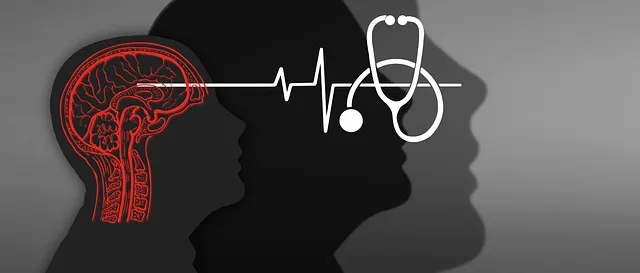The Kaiser Permanente Mental Health Access Center in Westminster tackles stigma around mental illness through education, awareness campaigns, and community engagement. They empower individuals with self-care techniques and promote understanding through tailored programs focusing on emotional intelligence and mindfulness. Peer support, innovative practices, and media storytelling are key strategies to foster an inclusive society where those facing mental health challenges can access help without judgment. The center advocates for systemic changes via policy collaborations to reduce stigma and improve overall well-being in the community.
Mental illness stigma remains a significant barrier to accessing care. This article explores targeted initiatives at the Kaiser Permanente Mental Health Access Center in Westminster aimed at reducing this societal scourge. We delve into five key strategies: understanding and addressing stigma through education, community engagement, peer support, media representation, and policy advocacy. By examining these efforts, we hope to illuminate paths towards a more inclusive society where individuals can openly seek mental health support at centers like Kaiser Permanente in Westminster.
- Understanding Stigma: Barriers to Seeking Help at Kaiser Permanente Mental Health Access Center Westminster
- Educating Communities: Breaking Down Misconceptions about Mental Illness in Local Networks
- Peer Support and Advocacy: Empowering Individuals at the Access Center
- Media Representation Matters: Shaping Public Perception through Storytelling
- Policy Changes and Support: Advocating for Systemic Stigma Reduction Strategies
Understanding Stigma: Barriers to Seeking Help at Kaiser Permanente Mental Health Access Center Westminster

Stigma surrounding mental illness remains a significant barrier to individuals seeking help and support. At the Kaiser Permanente Mental Health Access Center Westminster, we understand that many people face challenges when considering professional assistance due to societal perceptions and personal fears. This stigma can create a roadblock, leading to prolonged struggles and even avoidance of essential mental health services.
The center aims to address these barriers by promoting awareness and education about mental wellness. By fostering an environment of understanding and compassion, we encourage individuals to prioritize their mental well-being. Developing a self-care routine and learning mood management techniques are essential components of our support system. Additionally, risk assessments for mental health professionals play a crucial role in ensuring safe and effective treatment. Through these efforts, the center strives to reduce stigma and make seeking help more accessible, ultimately improving the lives of those facing mental health challenges.
Educating Communities: Breaking Down Misconceptions about Mental Illness in Local Networks

In efforts to reduce stigma surrounding mental illness, community education plays a pivotal role. The Kaiser Permanente Mental Health Access Center in Westminster has been at the forefront of these initiatives, focusing on empowering local networks with accurate knowledge and understanding. By implementing tailored Mental Health Education Programs Design, the center aims to dispel common misconceptions and promote empathy within communities. This strategy recognizes that widespread Emotional Intelligence is a cornerstone in fostering supportive environments for individuals facing mental health challenges.
Through interactive workshops, panel discussions, and awareness campaigns, the access center encourages open conversations about mental illness. These initiatives are designed to uphold the Mind Over Matter Principles, emphasizing resilience and the potential for healing. By educating community members, schools, and local businesses, the Kaiser Permanente Mental Health Access Center in Westminster is paving the way for a more inclusive and supportive society where individuals can seek help without fear of judgment or discrimination.
Peer Support and Advocacy: Empowering Individuals at the Access Center

At the Kaiser Permanente mental health access center Westminster, peer support and advocacy play a pivotal role in reducing stigma surrounding mental illness. Trained peers act as powerful allies, offering empathetic listening and understanding to individuals facing various mental health challenges. By sharing their own experiences, these advocates foster a sense of belonging and normalcy, breaking down barriers often associated with seeking help. This approach not only encourages those struggling to access support but also equips them with valuable coping skills.
The center promotes emotional well-being through innovative techniques like mindfulness meditation, equipping individuals with practical tools to manage stress and anxiety. This holistic approach, combined with peer advocacy, creates a supportive environment where people can openly discuss their mental health journeys. As a result, the Kaiser Permanente mental health access center Westminster has become a hub for community engagement, education, and empowerment, ultimately contributing to a more accepting and stigma-free society.
Media Representation Matters: Shaping Public Perception through Storytelling

Media representation plays a pivotal role in shaping public perceptions about mental illness. Stories shared through film, television, and news outlets can either perpetuate harmful stereotypes or foster understanding and empathy. When media platforms depict individuals with mental health struggles in nuanced, empathetic light, it contributes to reducing stigma.
For instance, initiatives like the Kaiser Permanente Mental Health Access Center in Westminster have utilized storytelling as a tool to promote cultural sensitivity in mental healthcare practice. By sharing personal narratives from diverse communities, they aim to challenge preconceived notions and build empathy among the general public. Community outreach program implementations that incorporate empathetic storytelling can bridge gaps between vulnerable populations and accessible mental health resources, such as those offered by Kaiser Permanente, ultimately leading to more inclusive and supportive communities.
Policy Changes and Support: Advocating for Systemic Stigma Reduction Strategies

Stigma reduction efforts require systemic changes and support to effectively combat societal biases surrounding mental illness. Organizations like Kaiser Permanente Mental Health Access Center Westminster play a pivotal role in advocating for policy shifts that promote understanding and empathy. By collaborating with policymakers, these centers can drive the development of inclusive legislation and initiatives aimed at improving public awareness campaigns related to mental health.
A key strategy involves educating communities about the impact of mental illness and fostering self-esteem improvement and resilience building. Through targeted programs and resources, these efforts aim to reduce misconceptions and encourage early intervention. By integrating such initiatives into societal fabric, we can create a more supportive environment for individuals facing mental health challenges.
Mental illness stigma reduction is a multifaceted effort that requires collaboration across communities, institutions like the Kaiser Permanente Mental Health Access Center Westminster, and media outlets. By understanding the barriers to seeking help, educating networks on misconceptions, empowering peer support, advocating for policy changes, and leveraging storytelling, we can create a more inclusive society where individuals feel comfortable pursuing mental health care. Initiatives at the Access Center demonstrate that through targeted strategies, significant progress in stigma reduction is achievable, paving the way for improved mental wellness outcomes.






